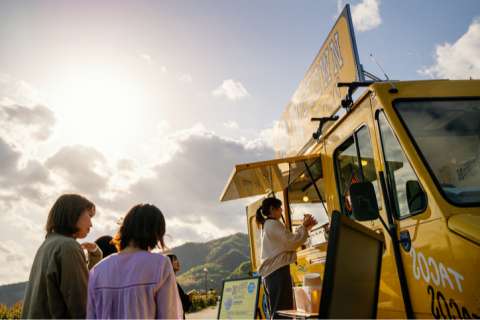Relocating your food vendor business to a new city comes with both opportunities and challenges. A fresh location can mean new customers and increased sales, but the transition requires careful planning. Understanding the local market, securing proper permits, and adjusting your marketing strategy are crucial for success. Whether you operate a food truck, a festival booth, or a mobile catering service, preparing in advance will help you navigate this transition smoothly.
Learn More About Your New Location
Before setting up shop, take time to discover your new city. Understanding the local food scene is key to making informed business decisions. Look into demographics, popular cuisines, and cultural food preferences.
If your menu relies on specific ingredients, check the availability of local suppliers. Identify key vending locations by researching high-traffic areas where food vendors thrive, such as farmers’ markets, outdoor festivals, and busy business districts. If your business operates mainly at events, explore the city’s festival calendar to determine where and when you can participate.
Networking can also provide valuable insights. Join online vendor groups, connect with local food service professionals, and visit other food vendors to understand the competitive landscape. Establishing connections early can help you settle into the community and gain inside knowledge about successful vending locations.
Understanding Local Laws and Health Regulations
Every city has its own rules for mobile food businesses, so familiarize yourself with the local legal requirements. Research what type of business license you need, as well as food service permits and health department regulations. Some cities require multiple permits, while others may have strict zoning laws for food trucks or vendor stalls.
Food safety is another critical consideration. Ensure that your food handling and storage practices comply with local health codes. This includes understanding inspection schedules and knowing where to park or store your food cart or truck when not in operation. Additionally, check state-specific tax obligations. Some cities charge sales tax on food items, and others require special insurance for food businesses. Consulting a local business advisor or legal expert can help you avoid costly mistakes during the transition.
Finding the Best Events and Locations
Choosing the right locations and events can make or break your success in a new city. Many vendors rely on high-traffic events like street fairs, concerts, and seasonal festivals. Use resources such as FestivalNet to find upcoming vendor opportunities.
When selecting festivals or markets, consider the event’s reputation, expected foot traffic, and the type of crowd it attracts. Applying for vendor spots early is important, as many high-profile events have limited space. In addition to large events, explore smaller, recurring opportunities such as weekly farmers’ markets or business district lunch spots. Testing different locations and events will help you determine where your food vendor business performs best.
Adjusting Your Menu to Local Tastes
Your menu plays a crucial role in attracting customers in a new market. While keeping your signature dishes is important, consider incorporating local flavors or regional ingredients to appeal to your new customer base.
Study the local competition and identify any gaps in the market. If you notice that a particular cuisine or food style is in high demand, consider adapting your offerings to fit that niche. This doesn’t mean overhauling your entire menu but making small adjustments that align with local preferences. Sourcing ingredients locally can also be a smart move. Not only does it support local farmers and suppliers, but it can also reduce costs and improve the freshness of your food. Building relationships with local vendors can lead to better pricing and exclusive product access.
Marketing Your Food Business in a New City
Even with a great location and menu, your business needs strong marketing to attract new customers. Social media is one of the most effective tools for spreading the word about your food vendor business. Use location-based hashtags, post mouth-watering food photos, and engage with potential customers through online communities.
Collaborating with local influencers or food bloggers can also boost your visibility. Offering free samples in exchange for reviews or social media exposure can help generate buzz around your business. Don’t overlook offline marketing strategies, either. Hand out flyers at local events, partner with nearby businesses for cross-promotions, and offer first-time customer discounts. Creating a launch event or soft opening in a busy area can give your food vendor business the exposure it needs to establish a customer base.
Logistics: Equipment, Staffing, and Supply Chain
Moving your food vendor business involves more than just finding a new location—it also requires logistical planning. If you operate a food truck, ensure it meets local regulations and has designated parking areas. If you use a cart or stall, research storage options for equipment and supplies.
Staffing is another key consideration. Will you need to hire local employees? If so, start recruiting early and look for candidates with experience in food service. Hiring local staff can also help you better understand the city’s customer preferences and work culture. Additionally, securing a reliable supply chain is crucial. Research local suppliers for fresh produce, meats, and specialty ingredients. If you previously relied on certain distributors, check if they operate in your new city or find comparable alternatives. Reliable supply chains help prevent unexpected shortages that can impact your ability to serve customers.
Building a Customer Base and Reputation
Winning over a new customer base takes time, but there are strategies to speed up the process. Customer loyalty programs, referral incentives, and discounts for repeat visitors can encourage people to return. Encouraging customer feedback is also important. Whether through online reviews or direct feedback at events, listening to your customers can help you make necessary improvements. Positive word-of-mouth and strong online ratings can significantly impact your business’s success in a new city.
Getting involved in the local community can also help build brand recognition. Consider participating in charity events, sponsoring community activities, or collaborating with other small businesses. The more visible and engaged you are, the more trust you build with your new customers.
Conclusion
Relocating your food vendor business requires careful research, strategic planning, and a willingness to adapt. From understanding the local market to securing proper permits and choosing the right events, every step plays a role in long-term success. Taking the time to learn about your new city and its regulations will help you avoid setbacks and position your business for growth.



